The UPA Years (2004 — 2014) - UPSC PDF Download
| Table of contents |

|
| The UPA Years (2004 — 2014) |

|
| UPA First Term (May 2004-May 2009) |

|
| The 2009 General Elections |

|
| The 2014 General Elections |

|
The UPA Years (2004 — 2014)
After the 2004 elections, the Congress formed the United Progressive Alliance (UPA) by aligning with minor parties to secure a majority over the NDA. Following President Abdul Kalam's invitation, the UPA, with external support from the BSP, Samajwadi Party, Kerala Congress, and the Left parties, successfully formed the government. This alliance enabled the UPA to sustain power for two consecutive terms, from 2004 to 2014. Despite challenges, the coalition government navigated through political complexities, maintaining stability and securing the necessary support to govern effectively over the course of its ten-year tenure.
UPA First Term (May 2004-May 2009)
During the UPA's first term (May 2004-May 2009), the anticipated choice for prime minister, Sonia Gandhi, declined the office, citing her 'inner voice' and potential complications due to her foreign origin. Instead, she nominated economist-turned-politician Manmohan Singh, who was sworn in as Prime Minister on May 22, 2004, and held a seat in the Rajya Sabha. Despite not assuming the prime ministerial role, Sonia Gandhi retained her positions as Congress party president and UPA chairperson. The government's policies, outlined in a Common Minimum Programme (CMP) influenced significantly by the communist parties, were perceived to be 'left-of-centre.'
 Manmohan Singh swearing oath as prime minister
Manmohan Singh swearing oath as prime minister
Social Welfare and Other Measures
- National Advisory Council (NAC): During the UPA government's first term, a significant influence on social welfare measures was the National Advisory Council (NAC), chaired by Sonia Gandhi. Comprising social activists, the NAC played a pivotal role in shaping the government's policies, particularly in the field of social welfare.
- National Rural Employment Guarantee Act (NREGA/MNREGA): In 2006, the government introduced the National Rural Employment Guarantee Act (NREGA), later renamed Mahatma Gandhi National Rural Employment Guarantee Act (MNREGA). This groundbreaking welfare scheme aimed at addressing rural poverty by guaranteeing 100 days of paid labor annually to rural households. The program also mandated one-third of the work to be reserved for women, emphasizing gender inclusivity.
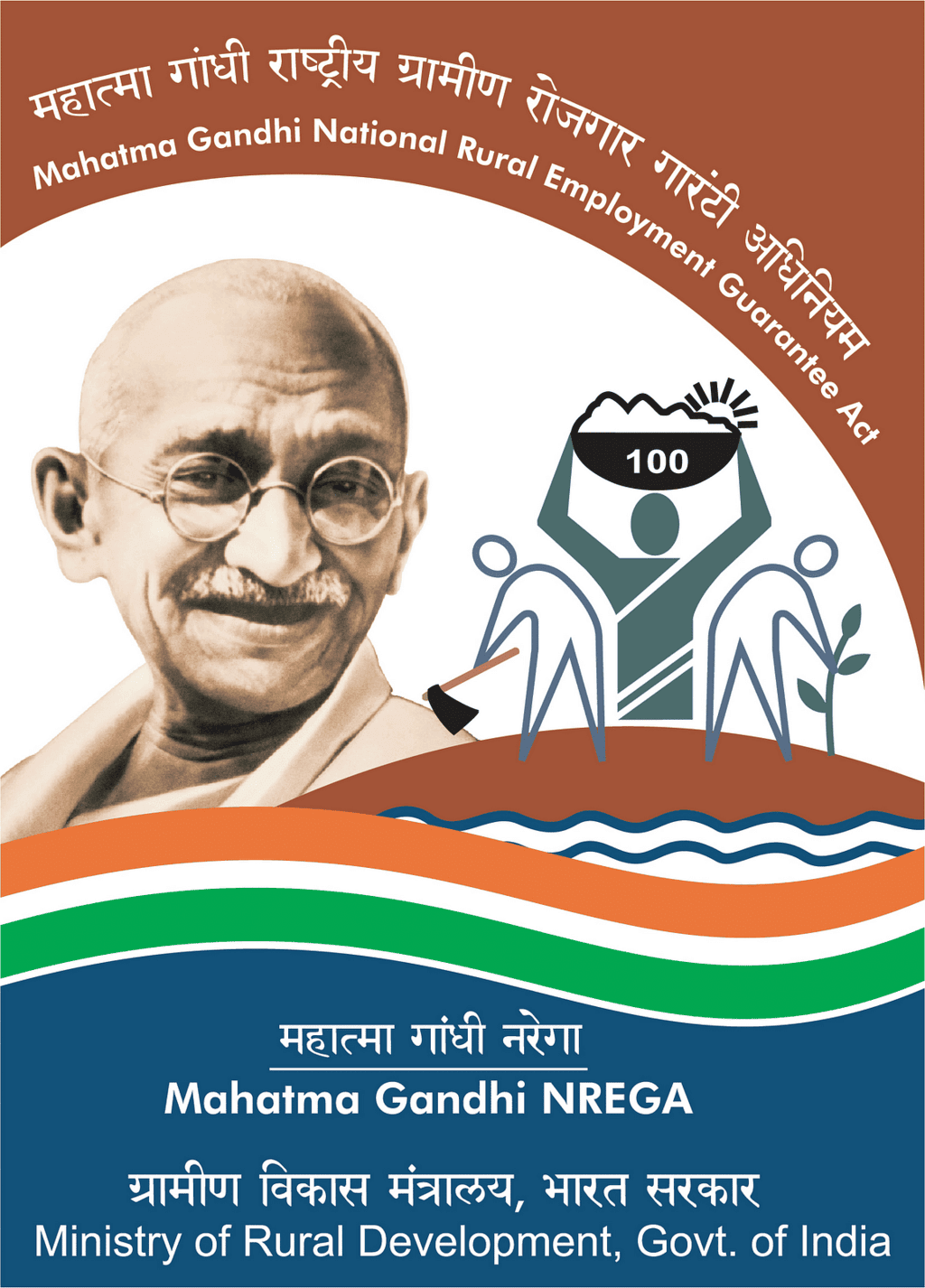 MNREGA poster
MNREGA poster
- National Rural Health Mission: In 2005, the government's health ministry launched the National Rural Health Mission, focusing on improving healthcare in rural areas. This initiative aimed to enhance healthcare infrastructure, accessibility, and quality of services to address the health needs of the rural population.
- Right to Information Act (RTI): The Right to Information Act of 2005 empowered every Indian citizen to request information from a 'public authority,' obliging timely responses within thirty days. The act also mandated public authorities to computerize their records, facilitating widespread dissemination of certain categories of information. This transparency measure aimed to enhance accountability and citizen access to information.
- Value Added Tax (VAT): In 2005, the government, under Manmohan Singh, introduced the Value Added Tax (VAT) to replace the complex sales tax system. VAT is a consumption tax that is considered more efficient and equitable, providing a streamlined approach to taxation on goods and services. This reform aimed to modernize the taxation system and promote economic efficiency.
Foreign Relations
Indo-US Civilian Nuclear Agreement: The Manmohan Singh government prioritized strengthening ties with the United States. In July 2005, Prime Minister Manmohan Singh visited the US to initiate negotiations on the Indo-US civilian nuclear agreement. The landmark declaration on this agreement was made during President George W. Bush's visit to India in 2006. This agreement granted India access to American nuclear fuel and technology, ending a thirty-year ban on nuclear trade imposed by the US. However, India had to agree to IAEA inspections of its civil nuclear reactors. The government faced and won a confidence vote in July 2008 after the Left parties withdrew their support
India-China Relations: Manmohan Singh also endeavored to improve relations between India and China. In 2006, China's President Hu Jintao visited India, and in 2008, Prime Minister Manmohan Singh reciprocated with a visit to Beijing. This diplomatic engagement resulted in the reopening of the Nathu La Pass in 2006, which had been closed for more than four decades. The reopening of this pass facilitated trade and people-to-people exchanges between the two nations.
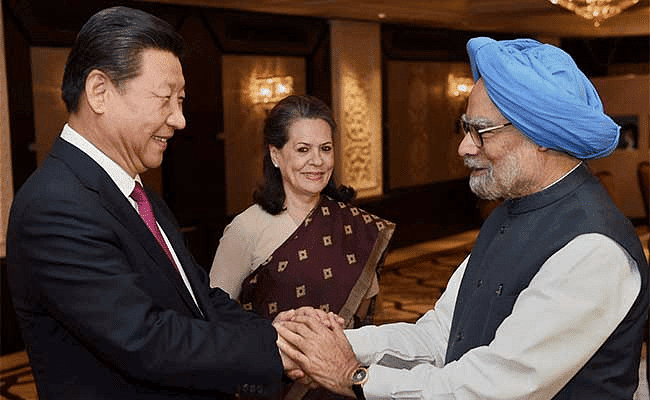 Manmohan Singh with Xi Jinping
Manmohan Singh with Xi Jinping
New President
Election of Pratibha Patil as President: In 2007, Pratibha Patil was elected and sworn in as the President of India, making her the first woman to hold this position in the country. A member of the Congress party and a close associate of the Nehru-Gandhi family, Patil had previously served as the Governor of Rajasthan. Her election marked a historic moment in Indian politics and was a significant step towards gender inclusivity in top political leadership.
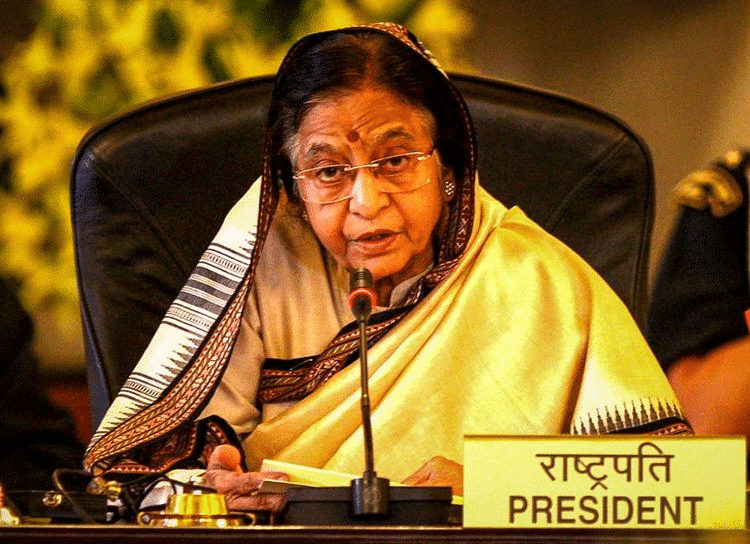 Pratibha Patil as President
Pratibha Patil as President
Terror Attacks in India (2007-2008)
Multiple Targets and Perpetrators:
- India faced a wave of terror attacks in 2007-08 perpetrated by various groups. Islamic and Hindu extremist groups were involved in carrying out these attacks.
Muslim Cemetery Bombing (2006):
- A series of explosions occurred at a Muslim cemetery in Malegaon, Maharashtra, in 2006, suggesting tensions and violence between religious communities.
Mecca Masjid Blast (May 2007):
- In May 2007, a blast took place in the Mecca Masjid in Hyderabad, Andhra Pradesh, further highlighting the vulnerability of religious spaces to terrorist acts.
Ajmer Dargah Bombing (2007):
- In 2007, a bomb exploded at the Ajmer Dargah in Rajasthan, revealing the broad spectrum of targets that terrorists aimed to strike.
Samjhauta Express Blast (February 2007):
- A blast occurred on the Samjhauta Express, running between India and Pakistan, in February 2007. Initially suspected to involve groups like Lashkar-e-Taiba (LeT) and Jaish-e-Mohammed (JeM), later investigations implicated a group of Hindus with extremist views.
Mumbai Terror Attacks (November 2008):
- The most devastating incident was the terrorist attacks in Mumbai on November 26, 2008. Pakistani terrorists targeted the prestigious Taj hotel, held guests hostage, and attacked the busy Shivaji rail terminus, causing significant loss of life.
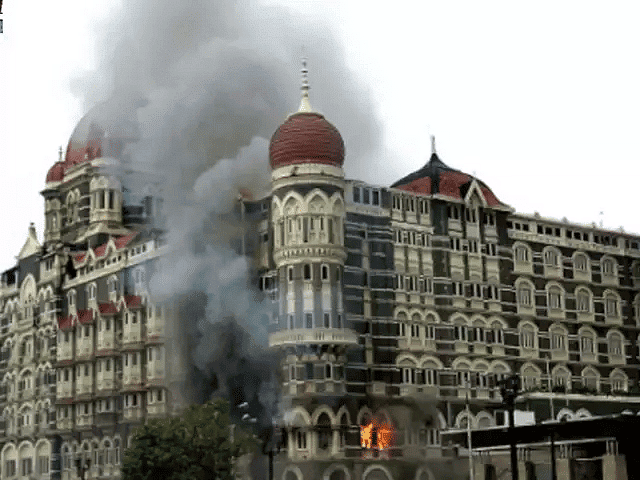 Taj hotel in 26/11
Taj hotel in 26/11
- The most devastating incident was the terrorist attacks in Mumbai on November 26, 2008. Pakistani terrorists targeted the prestigious Taj hotel, held guests hostage, and attacked the busy Shivaji rail terminus, causing significant loss of life.
Security Weaknesses Exposed:
- The Mumbai attacks exposed weaknesses in India's security apparatus. The terrorists reportedly reached the coast unnoticed in a small boat, revealing gaps in coastal security.
Confession and Mastermind Identification:
- Captured terrorist Ajmal Amir Kasab confirmed in his confession that Pakistan, particularly the Lashkar-e-Taiba (LeT), had masterminded the Mumbai attacks.
Legal Proceedings and Execution:
- In 2012, a special court sentenced Kasab to death for 80 offenses, including waging war against India. He was subsequently hanged on November 11, 2012.
Acquittal in Samjhauta Express Case (2019):
- In 2019, the NIA court acquitted four accused individuals in the Samjhauta Express blast case due to a lack of evidence, highlighting the complexities and challenges in prosecuting such cases.
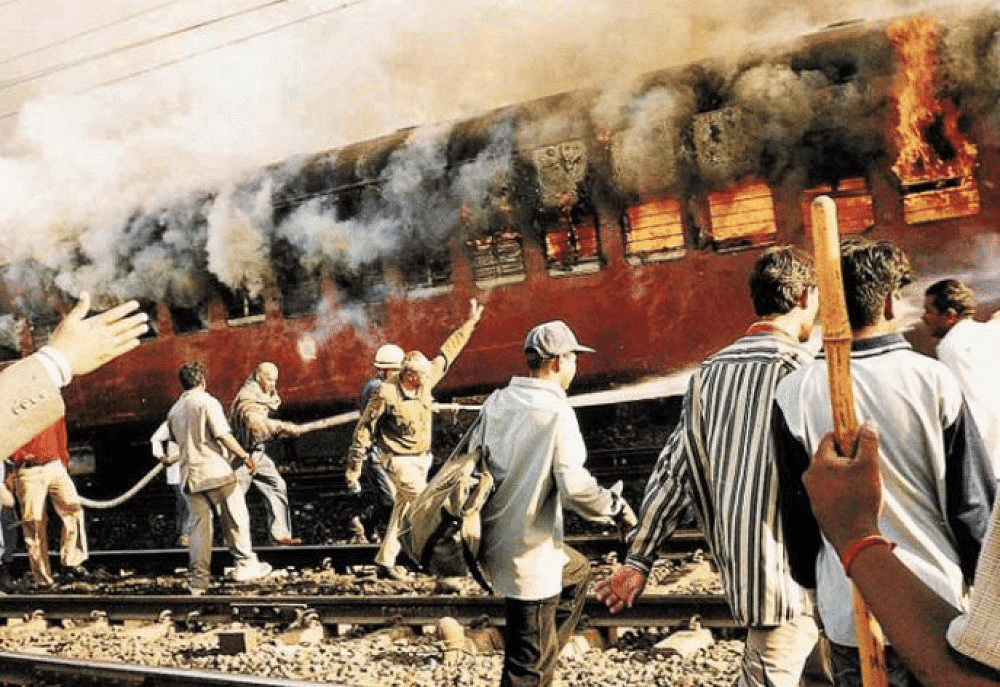 Samjhauta Express Bombing
Samjhauta Express Bombing
Situation in the States
- The Bahujan Samaj Party (BSP), led by Mayawati, won a majority in the assembly elections and formed the government in Uttar Pradesh. After a long time, the state was free of a coalition government. This brought stability to the state.
- In May 2008, the BJP made an inroad in the South for the first time, forming the government in the state of Karnataka.
- In Jammu and Kashmir, the National Conference emerged with the largest number of seats and formed a government, with the Congress joining as a junior coalition partner.
- In Gujarat, Chhattisgarh, and Madhya Pradesh, the BJP was in power.
Trouble in Kashmir
The 2009 General Elections
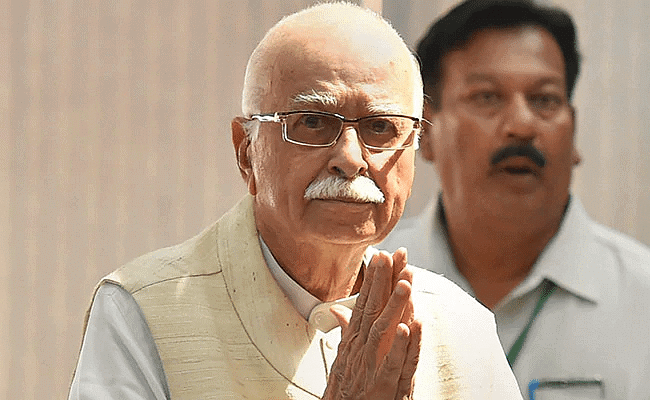 L.K. Advani
L.K. Advani
UPA Second Stint (May 2009-May 2014)
Telangana Issue
Pre-Election Promise: Before the 2004 elections, the Congress party formed an alliance with the Telangana Rashtra Samiti (TRS) and promised to create a separate state of Telangana from Andhra Pradesh if the Congress came to power at the Centre.
2009 Election Success: In the 2009 elections, the Congress performed well in Andhra Pradesh. However, the Chief Minister at that time, Y.S.R. Reddy, who played a significant role in the victory, was opposed to the idea of dividing the state.
Change in Leadership: In September 2009, Y.S.R. Reddy passed away in a helicopter crash, leading to a shift in the leadership landscape. The movement for Telangana gained momentum under the leadership of K. Chandrasekhar Rao (KCR).
Agitation and Fast: In November 2009, KCR went on a fast unto death to demand the creation of Telangana as a separate state. This led to widespread agitation and disruptions in Hyderabad, with supporters rallying in thousands.
Government Yielding: Under pressure, the Congress-led government at the Centre conceded to the demand, and in December 2009, it announced the initiation of the process to form the state. A commission led by retired Supreme Court judge B.N. Srikrishna was appointed to examine the bifurcation issue.
Formation of Telangana: Despite initial rejection of the commission's report by TRS, after negotiations, Parliament approved the Telangana Bill in February 2014. According to the act, Andhra Pradesh was formally divided to create the new state of Telangana. The two states were to share Hyderabad as the capital for ten years, and the Centre was to provide funds to Andhra Pradesh for building a new capital. Telangana officially came into existence in June 2014 with KCR as the chief minister.
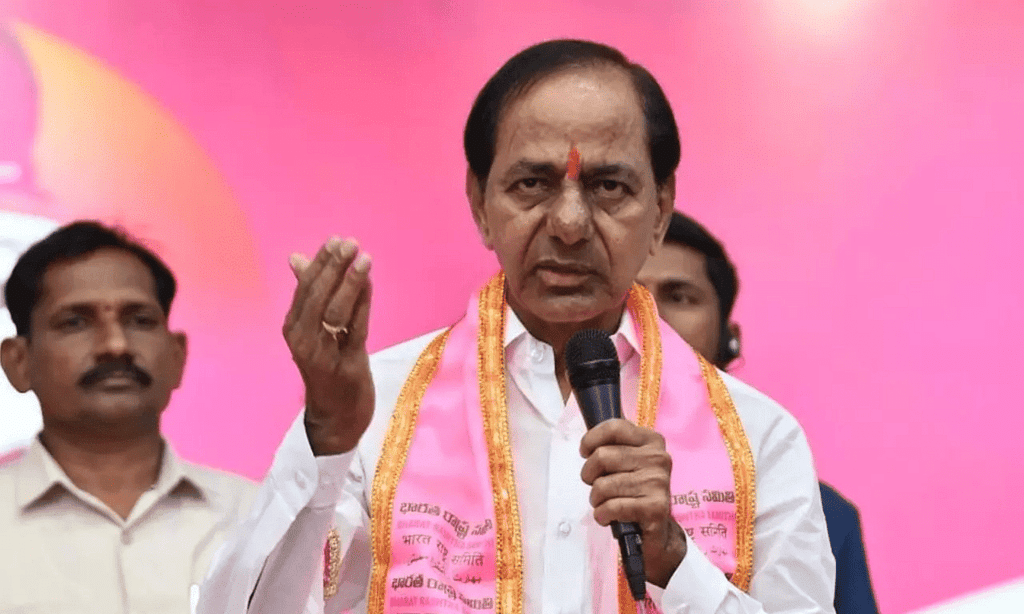 KCR
KCR
Historic Change in West Bengal
In May 2011, there was a historic development in West Bengal. The Left Front had ruled in West Bengal without break since 1977 (itself constituting a record). But in 2011, the people voted into power the Trinamool Congress (TMC). Mamata Banerjee, who had once been in the Congress but had broken away to form and lead the TMC, became the new chief minister of the state.
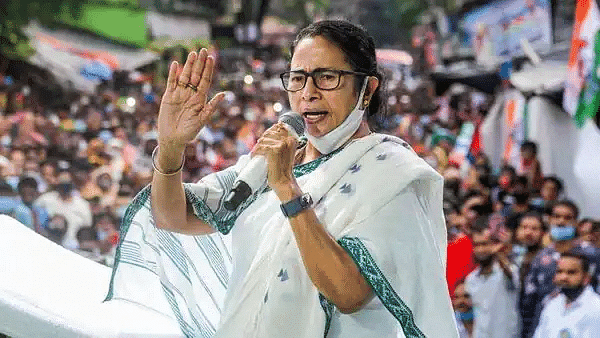 Mamata Banerjee
Mamata Banerjee
Social Welfare Measures and Legislations
Right of Children to Free and Compulsory Education Act (RTE Act):
- Enacted in 2009 and implemented Article 21-A inserted into the Constitution by the Constitution (Eighty-sixth Amendment) Act, 2002.
- Mandated full-time elementary education for every child in a formal school.
- Private schools (except minority institutions) required to enroll at least 25% of students from disadvantaged sections, subsidized by the State.
Women's Reservation Bill:
- Attempted to reserve 33% of seats in union and state legislatures for women.
- Shelved due to lack of support from allies, especially the Rashtriya Janata Dal (RJD).
Criminal Law (Amendment) Act, 2013:
- Formulated in response to a brutal gang rape incident in Delhi in December 2012.
- Introduced stringent measures to address sexual offenses against women.
- Addressed recommendations of the Verma Committee, including quicker trials and greater punishment for offenders.
Gang Rape Incident and Protests:
- A horrific gang rape incident in December 2012 in Delhi led to widespread protests in India and South Asia.
- The victim, referred to as 'Nirbhaya,' triggered calls for legal reforms and increased safety measures.
 A candlelight Vigil for Nirbhaya case
A candlelight Vigil for Nirbhaya case
Verma Committee Recommendations:
- Appointed by the government in December 2012, headed by J.S. Verma, a former Chief Justice of India.
- Critical of governance, police, and public apathy regarding sexual crimes.
- Recommended amendments to laws related to rape, sexual harassment, trafficking, and other forms of sexual offense.
- Did not recommend the death penalty for rapists but suggested a range of prison sentences.
National Food Security Act and Right to Food Act (2013):
- Enacted in 2013 to provide subsidised food grains to beneficiaries of the targeted public distribution system.
- NAC (National Advisory Council) did not favor cash transfers/food coupons, emphasizing patronage and protection for inclusive growth.
- Government faced challenges reconciling its priorities with those of the NAC.
Space Venture to Mars
In November 2013, the Indian Space Research Organisation (ISRO) achieved a significant milestone with the launch of its first interplanetary mission, the Mars Orbiter Mission (Mangalyaan). On September 24, 2014, ISRO became the fourth space agency globally to successfully reach Mars orbit, following Russia, the United States, and Europe. Impressively, India became the first country to achieve this feat in its inaugural attempt, demonstrating both technological prowess and cost-effectiveness in space exploration.
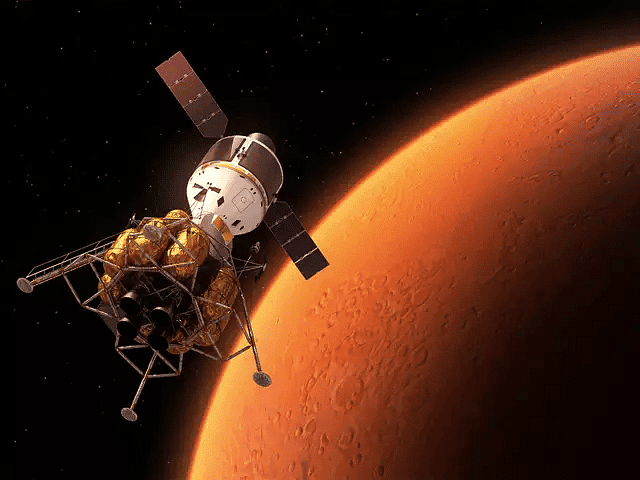 Mangalyaan
Mangalyaan
Corruption Charges and the Lokpal Act
Lokpal and Lokayuktas Bill (2013):
- Introduction: The UPA government passed the Lokpal and Lokayuktas Bill in December 2013, responding to circumstances arising from corruption allegations during its second term.
- Controversies: The need for anti-corruption measures became evident due to controversies like the alleged low-rate allocation of 2G and 3G spectrum and the Commonwealth Games scandal.
Anti-corruption Movements (2011):
- Leadership: Social worker Anna Hazare led anti-corruption movements in 2011, protesting against corruption in the government and the lack of stringent anti-corruption legislation.
- India Against Corruption: The movement garnered support from activists like Arvind Kejriwal and the formation of the organization "India Against Corruption."
- Protests: The protests were non-partisan and attracted large public participation, expressing frustration with corruption.
Committee Formation and Protests:
- Government Response: In response to protests, the government announced the formation of a committee to draft the Lokpal bill, with representation from both the government and activists.
- Failure of Committee: Distrust between government representatives and activists led to the failure of the committee's efforts.
- Baba Ramdev's Protest: Subsequent protests led by yoga guru Baba Ramdev, demanding the repatriation of unaccounted money, resulted in a government crackdown.
Lokpal Bill Developments:
- Approval and Rejection: The Lokpal Bill, approved by the government in July 2011, faced rejection by activists for excluding certain high functionaries from the Lokpal's jurisdiction.
- Anna Hazare's Fast: Anna Hazare initiated a fast, leading to his arrest and subsequent release due to public pressure.
- Government Resolution: In August, Parliament passed a resolution committing to a revised Lokpal Bill that addressed the main demands of Anna Hazare and his supporters, leading to the end of the fast.
Formation of Aam Aadmi Party (AAP):
- Arvind Kejriwal's Entry into Politics: Arvind Kejriwal and others, against the wishes of Anna Hazare, formed the Aam Aadmi Party (AAP) on November 26, 2012.
- Historic Victory: AAP achieved a historic victory in the Delhi Assembly elections of 2015, significantly impacting traditional political parties.
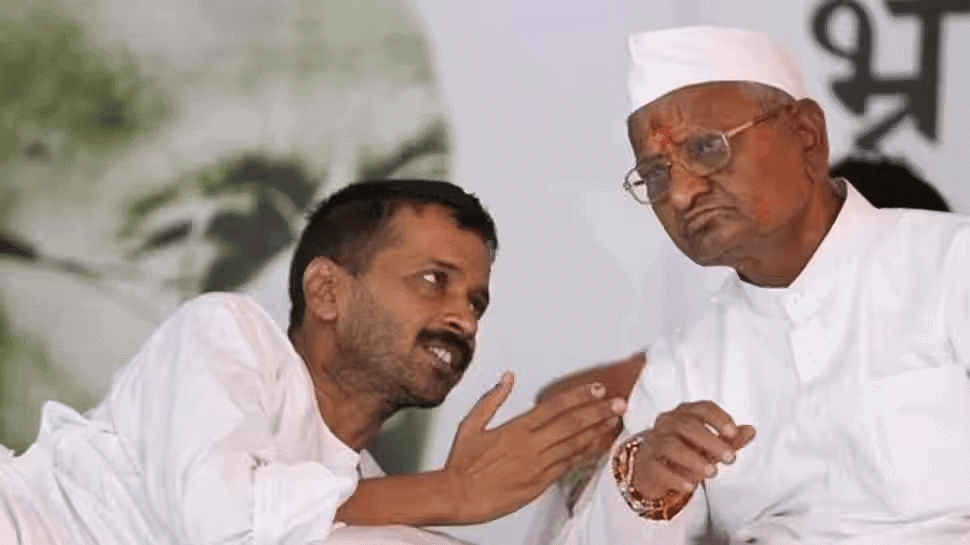 Arvind Kejriwal with Anna Hazare
Arvind Kejriwal with Anna Hazare
Lokpal and Lokayuktas Act, 2013:
- Legislative Journey: Initially passed in the Lok Sabha in December 2011, the bill faced hurdles in the Rajya Sabha and was referred to a select committee.
- Final Approval: In December 2013, the Lokpal and Lokayuktas Act, 2013, was passed by both houses and received assent from President Pranab Mukherjee on January 1, 2014.
- Mandate: The act mandates the establishment of Lokpal for the Union and Lokayukta for states to investigate corruption allegations against certain public functionaries, although it has been criticized for not making the Lokpal a constitutional body and excluding the judiciary from its purview.
Conditions before General Elections
During the April-May 2014 general elections, the positive achievements of the UPA's second term were overshadowed by lingering corruption allegations. The rural sector faced significant challenges, with a surge in farmer suicides attributed to factors such as indebtedness, crop failure, drought, and socio-economic issues. Despite a Rs 70,000 crore loan waiver in 2008, farmer distress persisted. Widespread dissatisfaction prevailed among the common people due to issues like price rise, unemployment, and perceived policy paralysis, hindering development and stalling progressive economic ideas.
The 2014 General Elections
Presidential Style Campaign:
- In 2014, analysts observed a departure from traditional election styles, with the campaign resembling a presidential election.
- Unlike previous elections focused on projecting party strength, the emphasis was on individual leaders.
Leadership Projections:
- The Congress presented Rahul Gandhi as their leader with potential prime ministerial credentials.
- Former Prime Minister Manmohan Singh clarified his unavailability for another term.
- The BJP showcased a structured party with emerging leaders; Narendra Modi was chosen as their prime ministerial candidate.
Election Dynamics:
- Rahul Gandhi lacked political experience and effective speaking skills, making him less formidable compared to Narendra Modi.
- Modi's campaign centered around the theme of development, emphasizing industrialization and job creation.
- The BJP adopted modern campaigning methods, utilizing social media, professional slogan creation, and support from RSS cadres.
Changing Electorate:
- Urbanization and migration triggered shifts in traditional caste equations.
- Modi minimized appeals based on caste, instead focusing on development initiatives that resonated with the young population.
Election Outcome:
- The 16th Lok Sabha elections took place in April-May 2014.
- The BJP secured an impressive majority on its own with 282 seats.
- The Congress experienced its worst electoral performance, winning only 44 seats.
- BJP's success spanned across most states, with exceptions in West Bengal, Odisha, Tamil Nadu, and Kerala.
- The BJP's vote share rose significantly from about 19% to approximately 31% on an all-India basis.
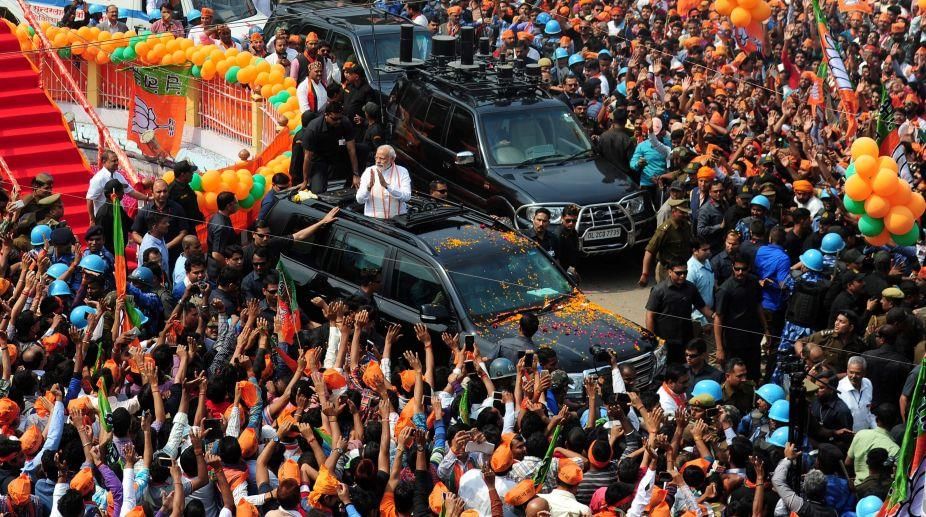 Prime minister Narendra Modi
Prime minister Narendra Modi
FAQs on The UPA Years (2004 — 2014) - UPSC
| 1. What is the UPA (United Progressive Alliance) and when did it govern India? |  |
| 2. What were the key achievements of the UPA during its first term from 2004 to 2009? |  |
| 3. What were the outcomes of the 2009 General Elections in India? |  |
| 4. What led to the UPA's defeat in the 2014 General Elections? |  |
| 5. Can you provide examples of other key policies or initiatives implemented by the UPA during its tenure? |  |



















